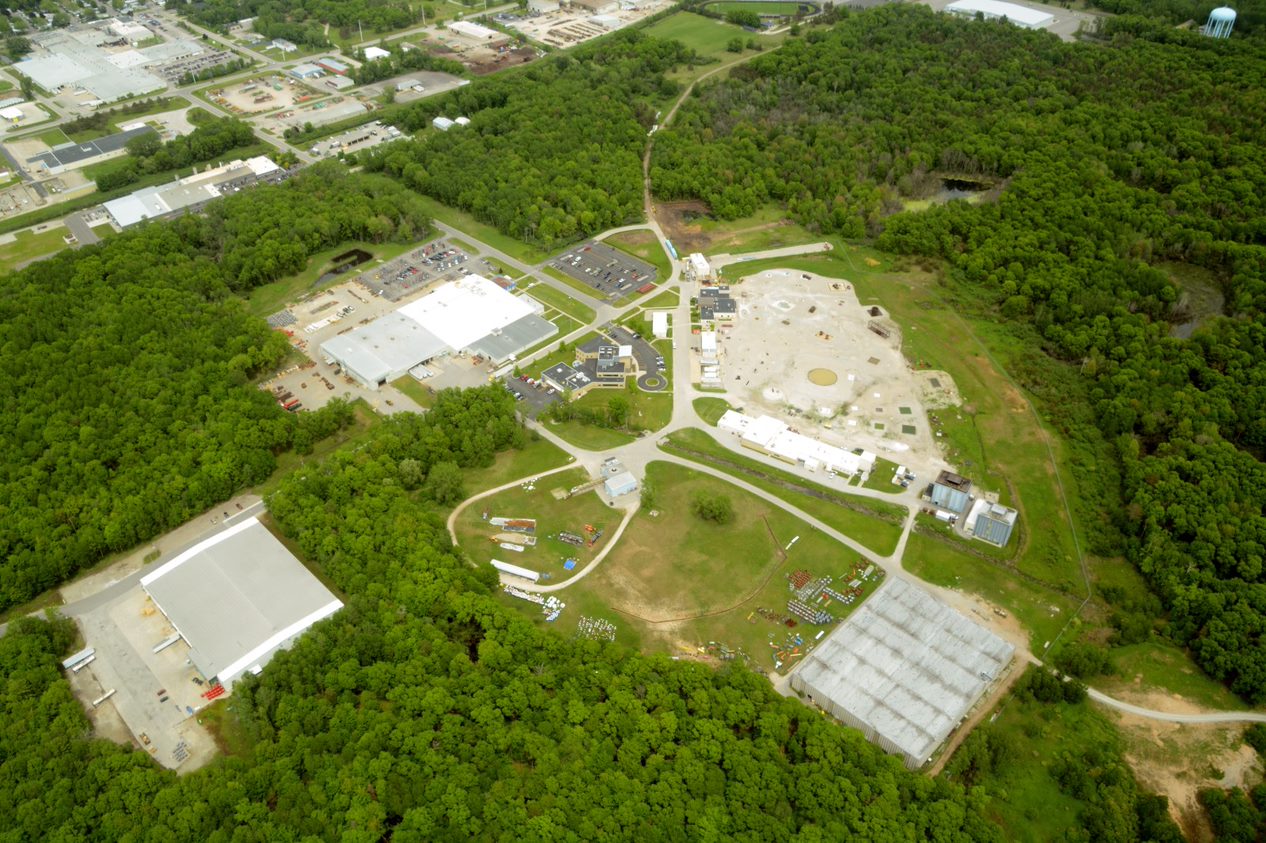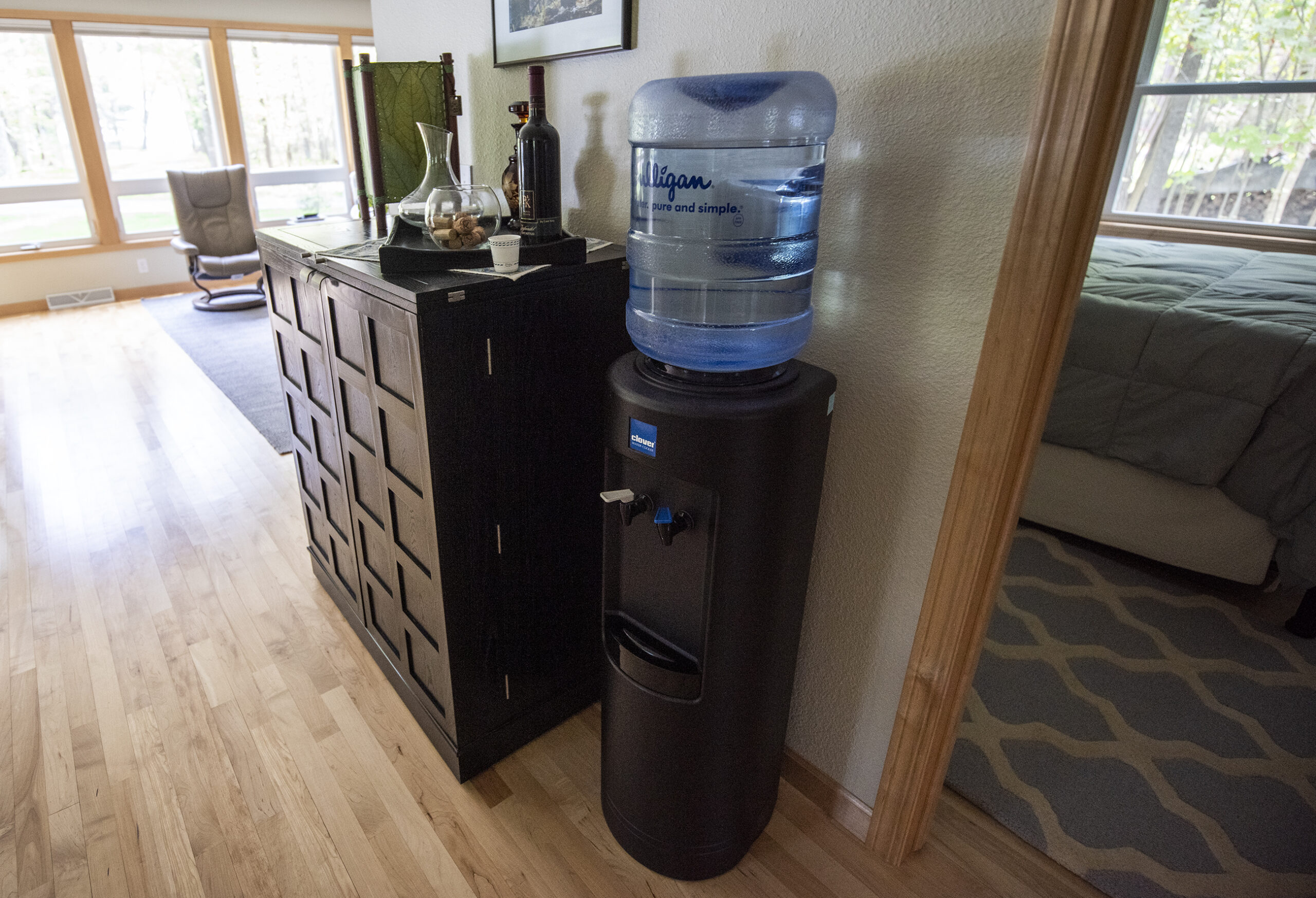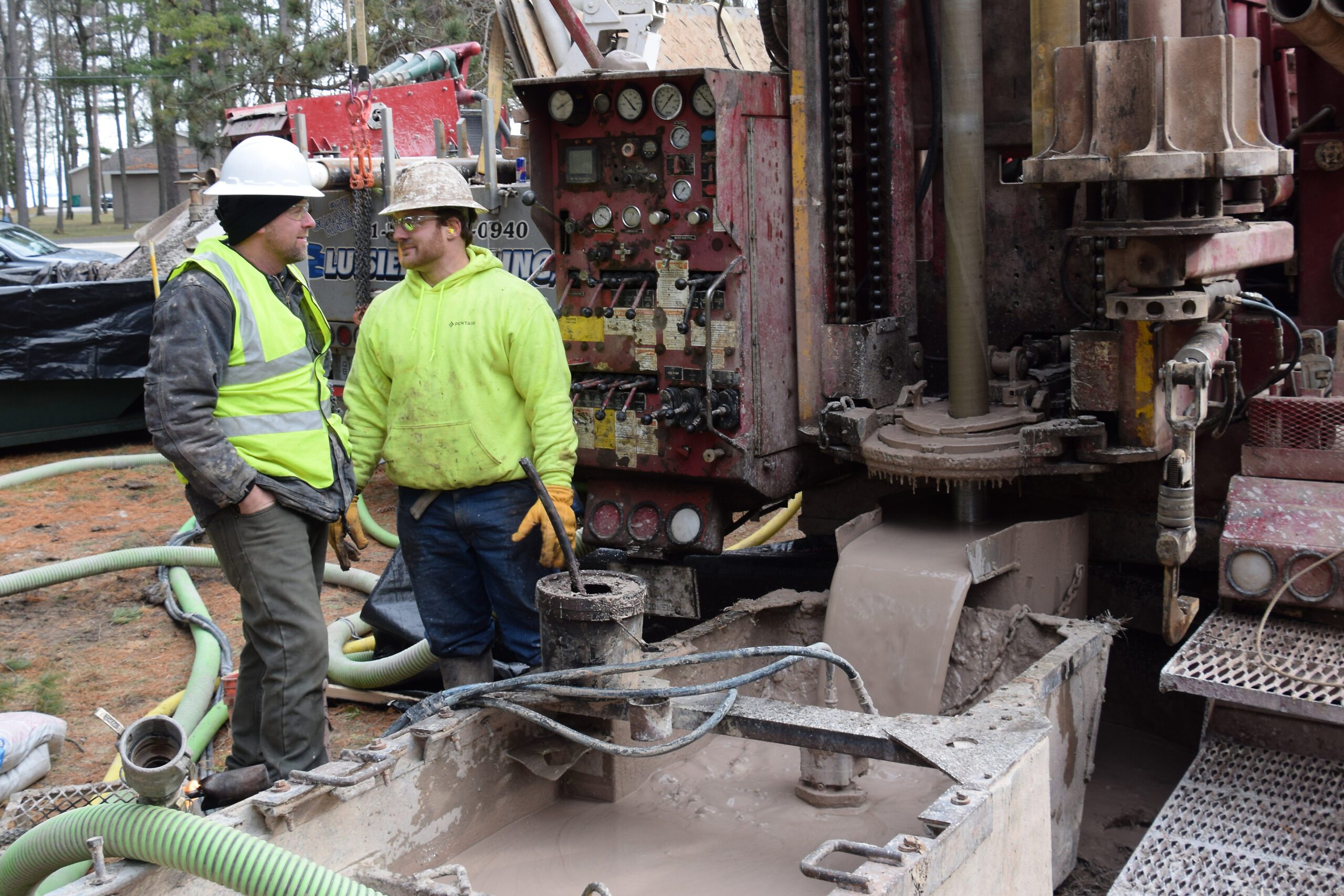Andrea Maxwell doesn’t have PFAS in her drinking water, but her neighbors do.
Her family’s well in the town of Peshtigo is near a fire training facility in Marinette, where chemicals formerly used in firefighting foam have seeped into groundwater over time. Tyco Fire Products, which owns the facility, has tested around 170 wells in the area for PFAS, also called “forever chemicals.”
Regulators and health experts have raised concerns about the class of thousands of synthetic chemicals because they’ve been linked to serious health issues, including kidney and testicular cancers, thyroid disease and fertility issues. PFAS, or perfluoroalkyl and polyfluoroalkyl substances, don’t break down easily in the environment.
News with a little more humanity
WPR’s “Wisconsin Today” newsletter keeps you connected to the state you love without feeling overwhelmed. No paywall. No agenda. No corporate filter.
In 2017, Tyco first reported high PFAS levels in groundwater to state regulators. The next year, residents sued the company for polluting their drinking water, reaching a $17.5 million settlement in 2021. For the past five years, Tyco has provided bottled water and in-home treatment systems to residents.
So far, Maxwell said sampling has shown no trace of the chemicals.
“We’re good now,” Maxwell said. “But we don’t know if we’re going to be good in five years.”
Maxwell has accepted an offer by Tyco to drill a 450-foot-deep well at no expense to her family. Work on the well began this month. For Maxwell, it feels like a solution to a problem residents had unknowingly faced for decades. At least 45 other homeowners in the town of Peshtigo have accepted similar offers.

Environmental regulators say deep wells can be a solution to PFAS contamination in some cases, but not all. It’s possible for the chemicals to seep into even deep aquifers, and not every deep water source yields a safe and sustainable supply of drinking water without costly treatment. But as more communities are discovering potentially unsafe levels of PFAS in their drinking water, some are also exploring whether deep wells may be an answer. In the southwestern Wisconsin town of Campbell on French Island, testing in 2020 showed high PFAS levels in private wells. Now that town will drill a test well in the region’s deep aquifer to examine whether it may be a safe source of drinking water.
In northeast Wisconsin, Tyco faces multiple lawsuits tied to PFAS pollution. Earlier this year, the Wisconsin Department of Justice sued Johnson Controls and its subsidiary Tyco after the company failed to notify the state for years of high PFAS levels in groundwater. Company officials have said they thought contamination was confined to Tyco’s site, while critics say everyone knows groundwater moves.
But Maxwell welcomes Tyco’s proposal for homeowners.
“Could maybe something have been done a little bit earlier? I don’t know. Maybe so,” Maxwell said. “Would the contamination have still been there? Yep. It would have still been there, and they are doing everything they can now to clean it up.”
Not every resident affected by PFAS contamination shares Maxwell’s view. Around two dozen have signed a petition to annex residents of the rural northeastern Wisconsin town to nearby Marinette for city water. Others would prefer to buy water from the city of Peshtigo or create the town’s own public water utility.
Tyco proposes to maintain deep wells for 20 years
Tyco and town leaders have been discussing options for years, and both say negotiations so far have failed to yield common ground on a permanent water solution.
This fall, Tyco began offering deep well contracts to homeowners to gauge their interest. The company said half who received them, or 45 residents, have signed those agreements. Under the agreements, Tyco will drill wells that draw from a deep aquifer and install in-home systems to soften water and treat high levels of radium and other contaminants present in deep groundwater. Testing of wells in the area shows radium levels roughly three to six times federal and state drinking water standards.
“It is a combination of technologies that very effectively removes those natural elements and ensures both the quality, as well as the good taste, of the water,” said Katie McGinty, chief sustainability officer of Johnson Controls.

McGinty said testing has shown no PFAS in the deep aquifer that is also used by neighboring communities as a source of drinking water outside the contaminated area around the fire training facility. Yet the Wisconsin Department of Natural Resources said some deep wells in the area do have low levels of a PFAS compound. The agency has also expressed concerns that PFAS could leak into the deep aquifer.
For PFAS-affected communities, the DNR has long held that a municipal water supply is the best option for safe drinking water. Even so, the DNR’s field operations director Kyle Burton said the agency realizes some residents prefer deep wells, and they can be a long-term solution. He said Tyco and Johnson Controls are reducing the risk of cross-contamination in designs for those wells.
“We know where (Johnson Controls) has done their due diligence in designing the well that they think, and we hope, will provide PFAS-free water,” Burton said. “But we won’t know until we monitor those wells in that area for a period of time to make sure that there is no cross-contamination.”
The lower aquifer is generally protected, but Burton said fractures may exist that could threaten contamination in some areas. Tyco and Johnson Controls will test deep wells quarterly for PFAS and other contaminants to gauge the effectiveness of treatment systems during the first year of installation. Then the DNR said it can evaluate whether less frequent monitoring is needed.
That lower water source could be the St. Peter Sandstone formation or a regional aquifer that underlies the southern two-thirds of the state. A 2020 study found radium readings have been increasing in public water supplies that draw from the aquifer over the last two decades. Researchers have said that deep groundwater has been in contact with rocks for a longer period of time, making it prone to higher radium levels. They have also said it’s reasonable to assume conditions are worsening as municipal wells are drilled deeper to escape groundwater polluted by contaminants at the surface.
Radium concentrations have grown more in the eastern portion of the state, but western and central Wisconsin have also seen levels rise. As concentrations grow, communities or homeowners that seek to use the aquifer as a source of drinking water may be forced to conduct more treatment, which could prove more costly.
In the town of Peshtigo, Johnson Controls maintains the companies will ensure water meets standards for public water supplies, including the state’s recently enacted PFAS standards. They also say they would meet any new standards forthcoming from the DNR or U.S. Environmental Protection Agency, which would be much lower and more protective of public health.
For 20 years, Tyco and Johnson Controls plan to maintain those wells. After that, it’s up to the homeowner. And they will pay for only one water solution for each resident that the companies deem affected.
Petition seeks annexation to Marinette for city water
As dozens of residents are taking Tyco up on their offer to drill deep wells, there is no clear consensus that this is the best solution. For communities dealing with PFAS contamination, the division among residents highlights the complexity of the problem and the challenges of reaching widely accepted solutions.
Jennifer Friday has been circulating a petition to garner support for annexing residents on the town’s waterfront to Marinette for city water. She’s hoping to collect enough signatures to submit to the Marinette City Council by the end of March, and Tyco has paid for a consultant to advise her on the annexation process. If annexation happens, the company has said it will pay for a water line and provide lump-sum payments to homeowners for any increased taxes or water bills tied to that option.

“In my mind, it’s a one and done,” Friday said. “You don’t ever have to worry about potential contamination, having continued monitoring, having to do the treatment system, all of that.”
Friday’s well is in the contamination plume, and testing has shown low PFAS levels. She receives bottled water from Tyco, but her family still uses well water for cooking and bathing.
Town of Peshtigo Chair Cindy Boyle said the board is pursuing the DNR’s preferred alternative to obtain safe water through a public utility whether it’s their own or from a neighboring community.
“With that, it provides protective oversight through the Public Service Commission to ensure that residents are drinking safe water,” Boyle said.
She noted the city of Marinette is currently not willing to provide water without annexing residents. Boyle added that annexation of some residents would decrease the town’s tax base, saying those who remain in the town would absorb more costs to fund services. Some town residents also oppose annexation due to drawbacks like higher taxes, water bills, and restrictions on hunting or burning brush.
Even so, people worry about the cost of the town creating its own water utility. At most, town estimates show it could cost more than $91 million to build the infrastructure, excluding ongoing operations and maintenance.
But Boyle points out the utility would serve residents not only in the area that the companies deem polluted, but also a broader area that the DNR has sampled for PFAS contamination. Johnson Controls and Tyco have refused to conduct testing there and claim the company is not responsible for any pollution in that area.
Boyle acknowledges residents’ frustration with the pace of progress and the uncertainty over whether the options they’re exploring will prove feasible to residents or the Public Service Commission. Town leaders say they’re not looking to burden taxpayers with the cost of securing safe water through a public utility.
“Our position on this is the same today as it has been from the beginning,” Boyle said. “We want to do everything in our power to work toward providing permanent safe water for everyone at the expense of the responsible party.”
But some residents, including Maxwell, are tired of waiting. That’s one reason why the deep well solution is appealing to them.
“We’re ready to be done with this and move on,” she said.
Wisconsin Public Radio, © Copyright 2025, Board of Regents of the University of Wisconsin System and Wisconsin Educational Communications Board.






